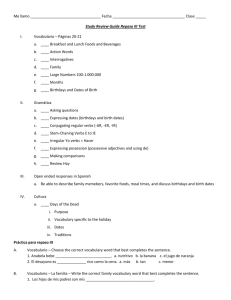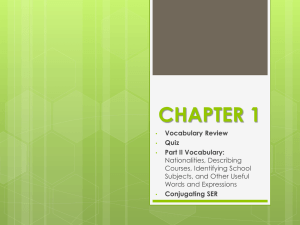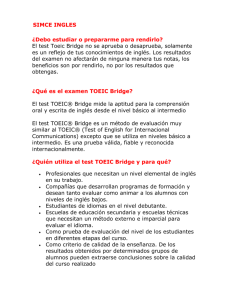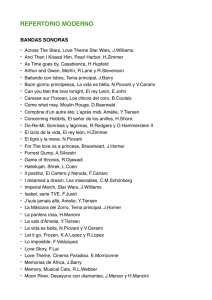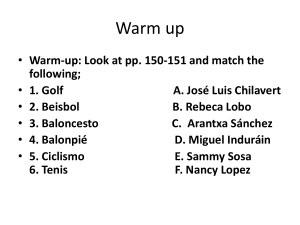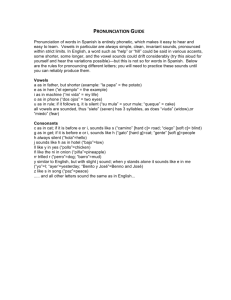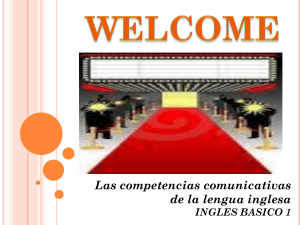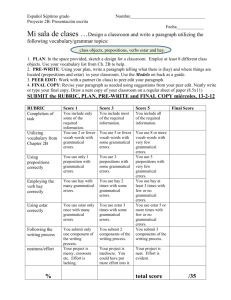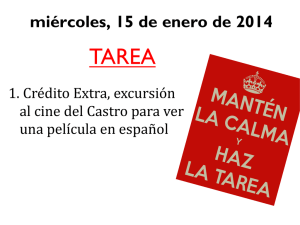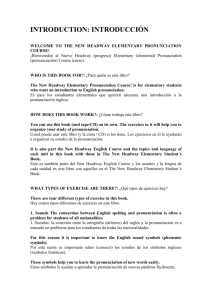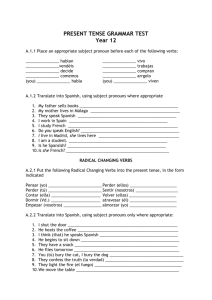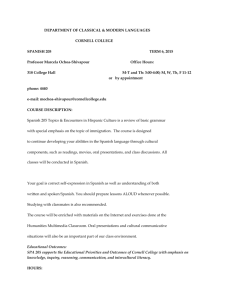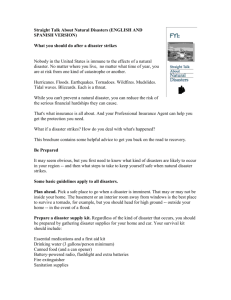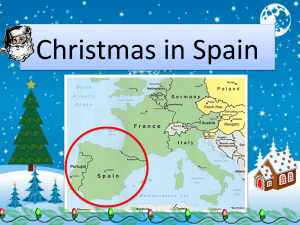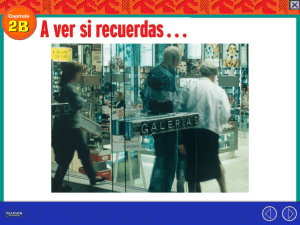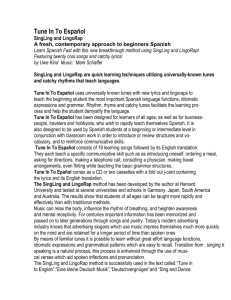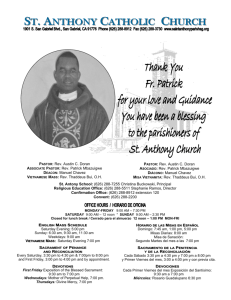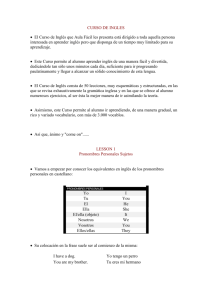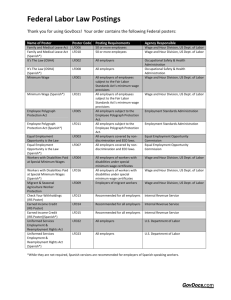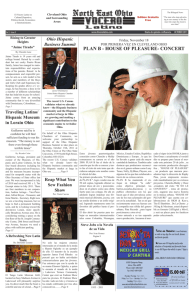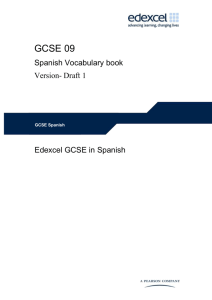Español I “You know, you may not be born in Puerto Rico, but Puerto
advertisement
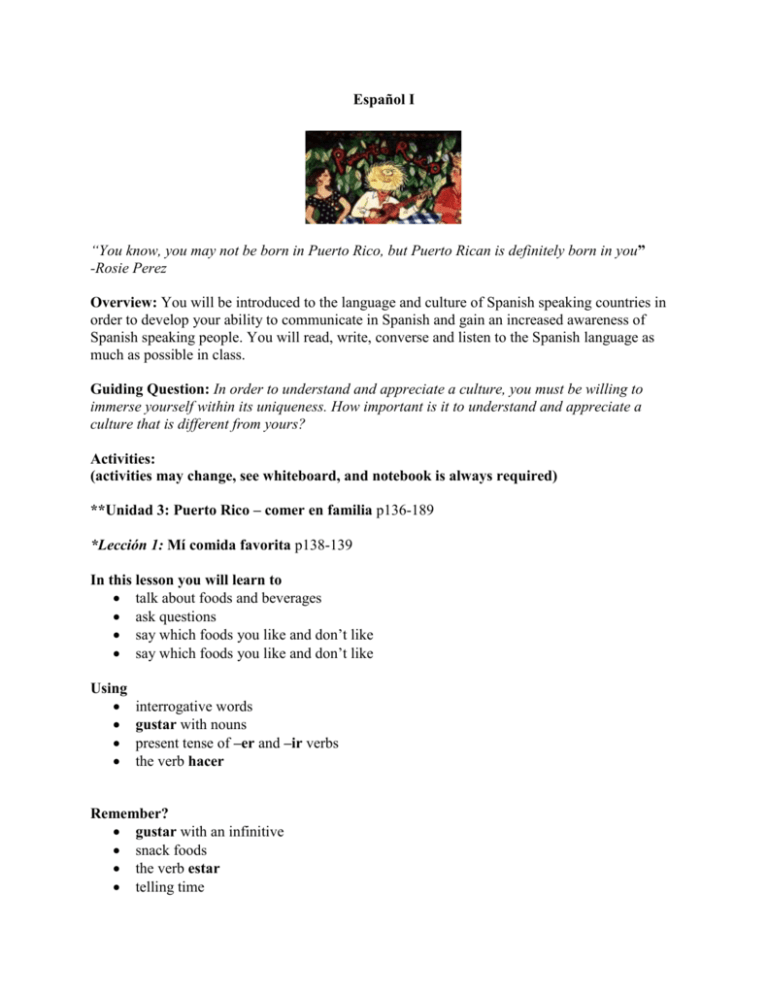
Español I “You know, you may not be born in Puerto Rico, but Puerto Rican is definitely born in you” -Rosie Perez Overview: You will be introduced to the language and culture of Spanish speaking countries in order to develop your ability to communicate in Spanish and gain an increased awareness of Spanish speaking people. You will read, write, converse and listen to the Spanish language as much as possible in class. Guiding Question: In order to understand and appreciate a culture, you must be willing to immerse yourself within its uniqueness. How important is it to understand and appreciate a culture that is different from yours? Activities: (activities may change, see whiteboard, and notebook is always required) **Unidad 3: Puerto Rico – comer en familia p136-189 *Lección 1: Mí comida favorita p138-139 In this lesson you will learn to talk about foods and beverages ask questions say which foods you like and don’t like say which foods you like and don’t like Using interrogative words gustar with nouns present tense of –er and –ir verbs the verb hacer Remember? gustar with an infinitive snack foods the verb estar telling time Comparación cultural In this lesson you will learn about: traditional cooking Puerto Rican artist Manuel Hernández Acevedo grocery shopping in Puerto Rico __ Presentación de vocabulario p140-141 (leer, escribir y traducir en cuaderno) __ Práctica de vocabulario p142 (act. 1, 2) __ Vocabulario en contexto p143 continue…148 and 153 (leer), p 144 (act. 4) __ Presentación de gramática p145 gustar + noun (review) __ Práctica de gramática p146-147 (act. 1, 6 comparación cultural – La cocina criolla, 9) __ Gramática en contexto p149 (act. 12) __ Presentación de gramática p150 –er and –ir ending verbs (vender and compartir) __ Práctica de gramática p151 (act. 13, 14) __ Comparación cultural – La Plaza de Colón p152 __ Lectura cultural p156-157 (review) __ Conexiones – Las ciencias p158 (leer) __ En resumen p159 Vocabulario y gramática (review) *Debate socrático TBD (jueves) Individual Project __ Proyecto 2 La historia p158 Due: el 5 de febrero Assessment: el 12 de febrero __ Vocabulario y gramatica __ Cultura e historia *Leccion 2: En mi familia p162-163 In this lesson you will learn to talk about family ask and tell ages express possession give dates make comparisons Using de to show possession possessive adjectives comparatives Remember? the verb tener, describing others numbers from 11-100 after-school activities Comparación cultural government elections portraits and instruments from Puerto Rico and Peru quinceañeras in Puerto Rico and Peru meals in Puerto Rico, El Salvador and Peru __ Presentación de vocabulario p164-165 (leer y escribir en cuaderno) __ Práctica de vocabulario p166 (act. 1, 2) __ Vocabulario en contexto p167 continue…172 and 177 (leer) __ Presentación de gramática p169 – possessive adjectives (review) __ Práctica de gramática p170 (act. 5, 6) __ Comparación cultural – Las elecciones en Puerto Rico p170 __ Nota gramatical p171 es el + number + de + month (review) y (Para y piensa #1-3) __ Gramática en contexto p173 (act. 11) __ Presentación de gramática p174 Comparatives (review) __ Práctica de gramática p175 (act. 12, 13) __ Comparación cultural – Los retratos p176 __ Lectura cultural p180-181 (leer y #1-3) __ En resumen p183 Vocabulario y gramática (review) *Debate socrático TBD (jueves) Group Project __ Comparación cultural - ¿Qué comemos? Lectura y escritura P186-187 De: el 26 de febrero Assessment: el 26 de febrero __ Vocabulario y gramática __ Cultura e historia Extensions: see Mr. Figueroa
